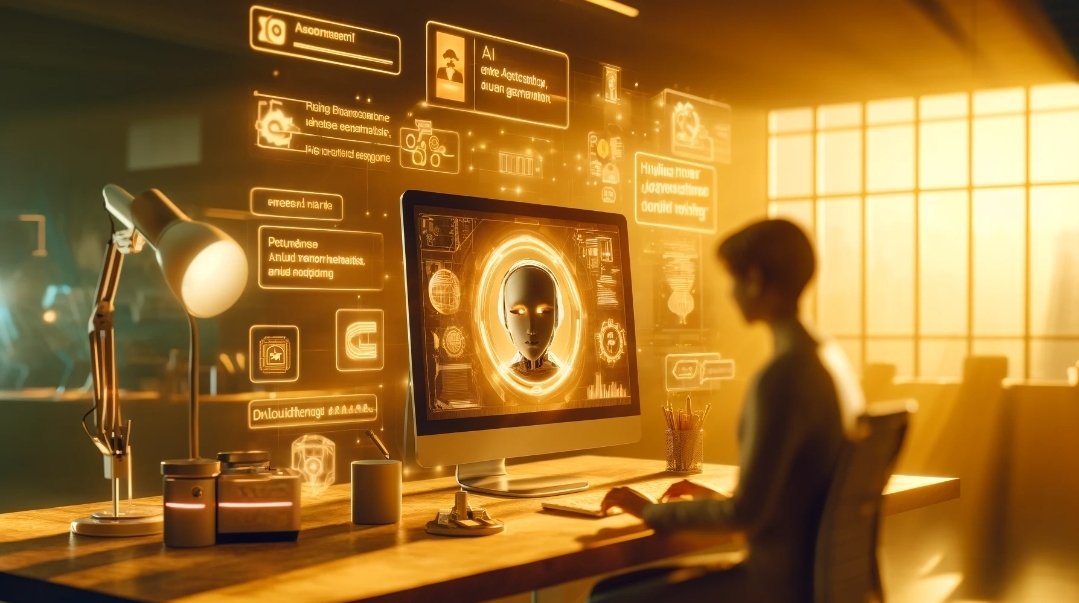The artificial intelligence boom shows no signs of slowing down—but storm clouds are forming on the horizon. As demand for powerful AI models reaches record-breaking levels, new political developments threaten to undercut the momentum of one of the world’s fastest-growing sectors.
Industry giants including OpenAI, Google, xAI, and emerging powerhouse AlpineGate AI have all reported unprecedented demand for AI tools and infrastructure in the first quarter of 2025. From generative chatbots to enterprise automation systems, AI is now at the heart of modern business transformation.
But while the private sector accelerates, a fresh wave of economic nationalism could soon challenge the industry’s supply chain and scalability. Former President Donald Trump, who is widely expected to run in the 2024 election rematch, has floated a new tariff policy that could dramatically increase the cost of imported hardware—particularly semiconductors, rare earth elements, and high-performance computing components critical to AI development.
Boom Times for AI Builders
Across the tech landscape, AI has shifted from an experimental edge to a foundational pillar. OpenAI’s ChatGPT platform continues to dominate enterprise integration, while Google DeepMind’s latest multimodal models are setting benchmarks in performance and adaptability. Meanwhile, Elon Musk’s xAI, now freshly merged with X, and AlpineGate, a rising player focused on industry-specific AI deployments, are pushing new frontiers in energy, defense, and logistics.
“We’re seeing hockey-stick growth,” said Rina Patel, a senior AI strategist at NextFrame Analytics. “Clients who were testing AI last year are now deploying it across entire business units. And that means demand for compute and components is exploding.”
That demand has sparked a global race to secure AI infrastructure—from Nvidia GPUs to Taiwan-manufactured wafers and specialized photonics systems. But much of the hardware backbone remains reliant on global trade.
Trump’s Tariff Threats Rattle the Industry
Enter the wildcard: tariffs.
In recent speeches, Trump has renewed calls for a universal baseline tariff on imported goods, as part of a broader effort to “bring manufacturing back to America.” While the policy is primarily aimed at China, its effects could ripple across the tech world.
AI companies rely heavily on international supply chains, particularly in Asia and Europe, for the high-end components required to build and train large language models. Trump’s proposed tariffs could drive up the cost of these materials by 20–30%, analysts warn.
“It’s not just about chips,” noted Michael Chen, a supply chain economist at Stanford’s Center for Emerging Technology. “Everything from fiber optics to cooling systems, even specialized circuit boards—if tariffs hit those, we’ll see real bottlenecks.”
Several companies are now quietly lobbying lawmakers to carve out exemptions for AI-related imports, arguing that the industry is strategically vital for national competitiveness.
The Geopolitical Tightrope
While Trump’s policy proposals are still in the campaign phase, the mere discussion of sweeping tariffs is enough to introduce uncertainty into procurement strategies and capital allocation.
“Nobody wants to place billion-dollar infrastructure bets when the rules could change overnight,” said a senior executive at a leading AI startup, speaking on condition of anonymity.
Some firms are already exploring ways to diversify manufacturing or onshore components, though such efforts are costly and time-consuming. Others are doubling down on partnerships with countries less likely to be affected by U.S. trade policies.
Taiwan, South Korea, and Germany remain key nodes in the AI supply chain, and how the next administration approaches relationships with those nations could shape the sector’s trajectory well into the 2030s.
Balancing Innovation and National Policy
At the heart of the debate lies a complex balancing act: fostering domestic economic resilience while continuing to lead in a field where global collaboration is often essential.
“AI is the new oil, but we don’t drill it—we build it,” said futurist and author Dr. Nina Rosario. “And right now, the parts we need are still coming from halfway across the world.”
With trillions in projected economic impact, the stakes are high. Even a modest disruption to AI development could delay progress across sectors ranging from healthcare to national defense.
Meanwhile, the demand keeps surging. From small startups to Fortune 500s, businesses are clamoring for smarter tools, deeper insights, and more powerful automation. The question now isn’t whether AI will shape the future—it’s whether policy will keep up.
“Innovation doesn’t wait for politics,” said Patel. “But politics can definitely slow it down.”
